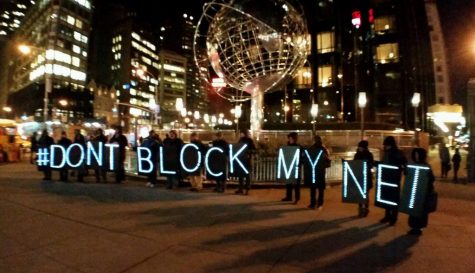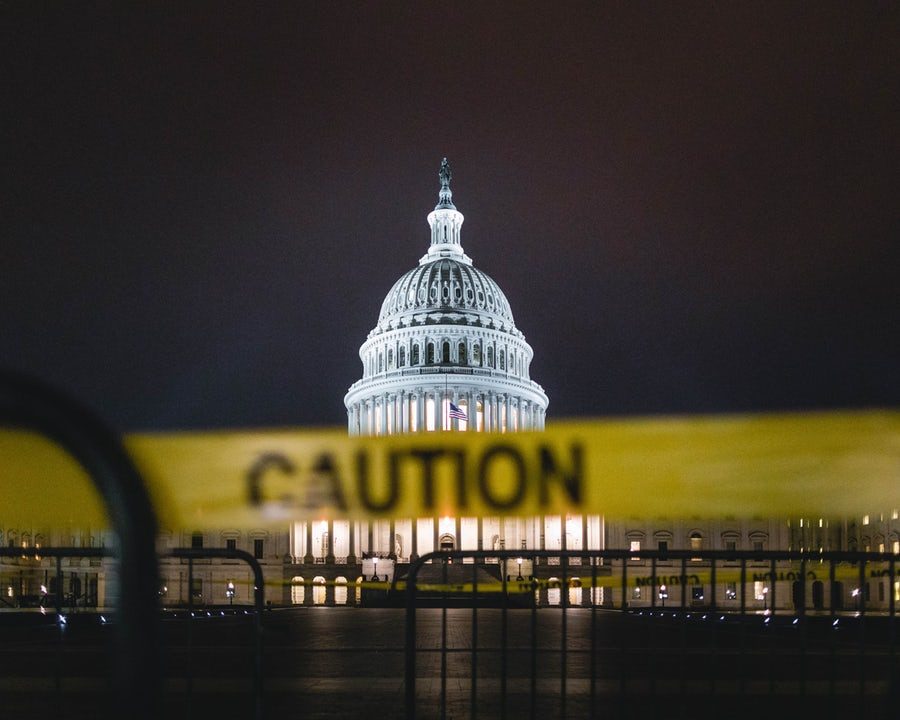The fight for net neutrality continues
January 9, 2018

In America and all over the world, people want to have the freedom of choice. However, as people’s lives begin to revolve more and more around the internet, they have the possibility of losing a fair, open, unbiased view and accessibility to the internet. Net neutrality was a term first used by a Columbia University professor, Tim Wu, in 2003. It is the belief that internet service providers must treat all data on the internet equally and not block, slow or charge money for specific websites. Along with not charging differently based on the user, content, application, platform, or website. Since billions of people have access to the internet, net neutrality is a concept that effects an immense amount of people.
The ‘Day of Action to Save Net Neutrality’ was an event on July 12, which over 50,000 websites and organizations contributed to the cause. The chairman of the Federal Communications Commission or FCC, Ajit Pai, has been the face for the fight against net neutrality. Pai believes that the internet as people have it today ‘stifles innovation and competition.’ Under the FCC’s proposed bill, internet service providers will be able to block, slow, speed, or do virtually whatever they want to the internet and its websites with no law in place to prevent possible corruption within the service providers.
A proposal of an ‘internet package plan’ has recently surfaced that shows a possible future without net neutrality. The proposal includes restrictions to messaging apps, social media, video and streaming, music, email, cloud services, etc. Unless someone purchases a plan that includes their desired material. An example of this in prior history was service provider, AT&T, blocking the app FaceTime and forcing customers to pay for the otherwise free app through a ‘shared data plan.’
Those in favor of net neutrality believe that without new regulations, the internet service providers can favor private networks. For example, Comcast and Microsoft struck a deal allowing users to stream television through the Xfinity app on Xbox without it counting towards their bandwidth limit, whereas using other apps like Netflix, Hulu, and SlingTV will count towards the bandwidth limit.
With all this talk of the fight for net neutrality, many are wondering why people would be against the practice. Those arguing against net neutrality are mainly internet service providers, broadband companies, and hardware manufacturers. Those who oppose the regulations argue that with the control of the internet and its content, service providers can better control the market and make the internet ‘more orderly.’ Another motive to repeal net neutrality is the belief that the internet is too unregulated and in need of reformation.
Ajit Pai has been pushing this plan and the FCC will vote on his proposal on December 14. If this plan goes through and the United States loses net neutrality, the companies who give many people internet access could limit access to some websites and apps by slowing speed or blocking them all together, while giving other websites and apps high speed loading or promoting them through their control of the content that they would get. This is called curving traffic and is seen as monopolistic amongst those in support for net neutrality.
The fact of the matter is that as of now, everybody has a relatively unbiased and similar view and accessibility of the internet. However, if on December 14 the FCC votes in favor of Pai’s plan, then the entire internet and all of its services will be in the hands of the companies that people buy their internet from. The internet could very easily become restricted and self-oriented towards that company’s own ideology, blocking available websites, apps, information, etc. that compete with the company, or just simply what they don’t want their users to have access to.
The FCC is putting up a strong fight to repeal the laws in place for the freedom that internet users currently have, but as a result of their agenda, millions of people are protesting to maintain their right for net neutrality.
















